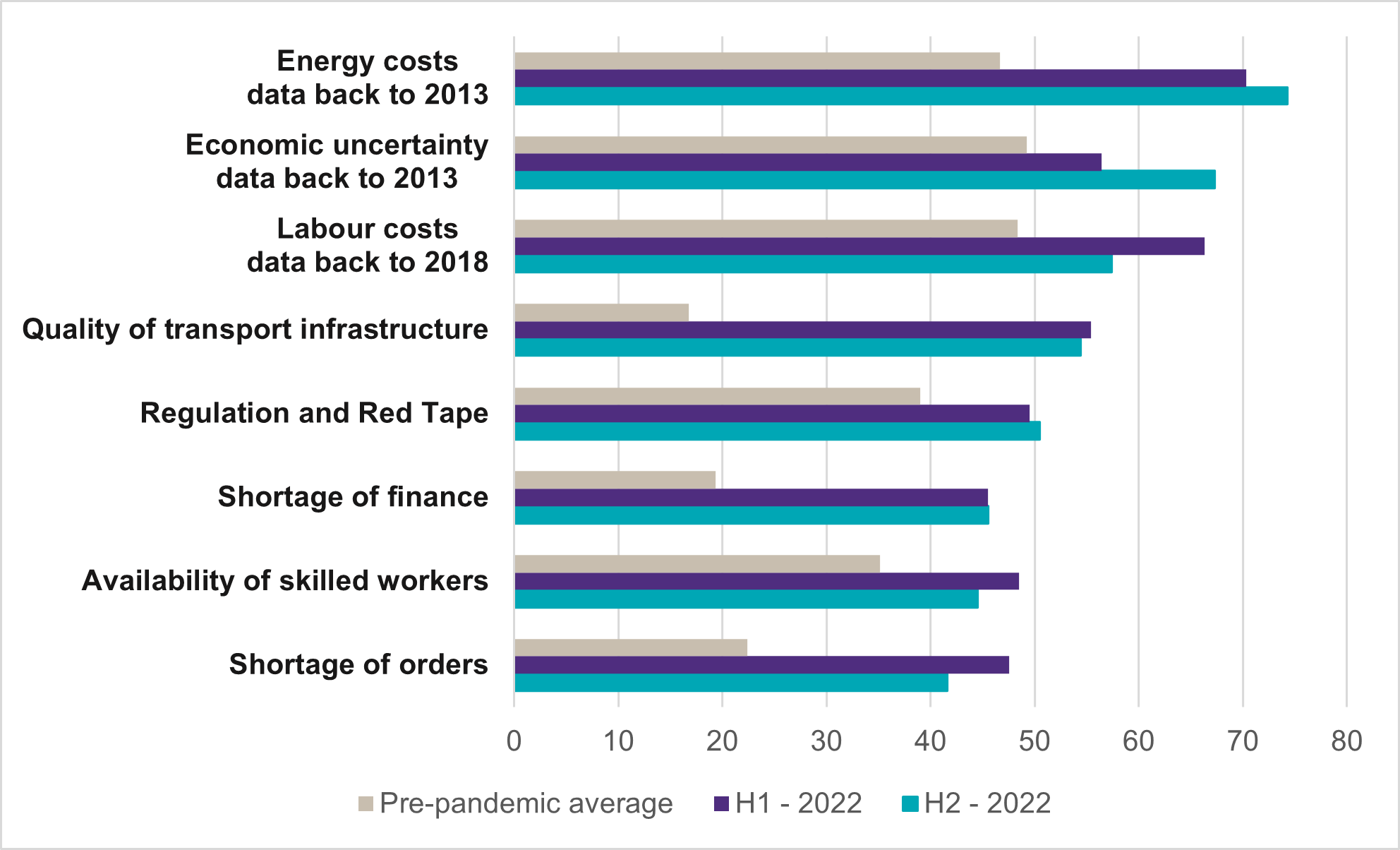-
Digital and Analytics
We have developed distinctive capabilities in digital advisory and data analytics that are key to the success of dynamic organisations.
-
Business Consulting
Our business consulting services help organisations improve operational performance and productivity throughout the growth life cycle.
-
Corporate Finance & Restructuring
We combine our insights and experience to provide a comprehensive range of advisory and corporate finance and restructuring solutions.
-
Internal Audit
Our internal audit service is designed to provide both assurance and consulting assistance on the adequacy and effectiveness of an organisation’s system of internal controls.
-
Business Risk Services
Our service is focused on enabling broader risk coverage and proactive management of risks for the achievement of organisational strategy.
-
Business Process Solutions
We work with a multitude of organizations to improve their finance function efficiency, reduce costs associated with business processes and provide a complete solution to the challenge faced by South African organizations.
-
Programme Assurance & Advisory
Our aim is to protect shareholder value by providing Assurance and Advisory services on change portfolios and large-scale programmes to assist organisations.
-
Forensic Services
Our forensic capability is integrated with our wider advisory services – not an add-on.
-
Cyber Advisory
Our Cyber Advisory service is designed to help you identify, protect, detect, respond and recover from cyber-attacks.
-
IT Advisory Services
We help clients to navigate the complexities and provide you with robust independent assurance that your IT risks, key management priorities and core systems are being appropriately managed.
-
SNG ARGEN
We have a dynamic actuarial team set to assist businesses to comply with the audit standards where actuarial services are required.
-
General Audit
We provide a sound statutory audit of financial statements specialising in both listed entities and state-owned organisations.
-
Financial Services Group (FSG)
The Financial Services Group (FSG) offers specialised audit and advisory solutions to the banking, treasury and financial services sectors.
-
Technical Excellence
We have a well-established specialized technical division, with in-depth, local and international knowledge and experience, which consists of three units namely; Accounting, Audit and Sustainability reporting.
-
Corporate Tax
We offer your business access to a global network of tax specialists in over 130 countries with extensive corporate tax technical skills to provide meaningful advice and adding value to your organization.
-
Value-Added Tax
We can manage your overall exposure to indirect taxes, guide you through complex South African Value-Added Tax (VAT) legislation.
-
Global Mobility
Taxes can be complicated, but the SNG Grant Thornton approach is to assist the new assignee with a clear and easy process.
-
Customs and Excise Tax
Our Customs and Excise team assist traders with driving cost-effective supply chains while maintaining legitimate trade.
-
Tax Technology
This is the lynchpin of our tax audit and advisory approach in making the tax function of our clients effective in data management tools.
-
International Tax & Transfer Pricing
Our team is ideally suited to serve large multinationals and other global companies that need on the ground expertise in multiple jurisdictions, given our extensive network of offices around the globe.
-
Specific Focus Areas
We have a team of dedicated tax specialists with deep knowledge to bring practical and cost-effective tax solutions to our clients and assist entities operating within these sectors to effectively manage their tax needs.
-
Tax Dispute Resolution (TDR) Services
Taxpayers are experiencing significant increase in number and size of tax audits by SARS which are leaving taxpayers with additional assessments and penalties, sources of tax disputes.
-
Business Consulting
We provide fit-for-purpose solutions to address major challenges the Education sector faces by supporting our clients.
-
Employees’ Tax Services
Its important to ensure that the institution complies with the tax legislation and that all payroll records are accurate and complete.
-
Programme Assurance & Advisory
The need for sound project management and effective solution delivery gives you the edge in competitive markets.
-
Forensic Services
Fraud detection review and forensic investigation for Higher Education
-
Digital and Analytics
The digitalisation of processes within the higher education sector leads to increased data generation. This data can be an essential asset when leveraged correctly.
-
Cyber Security Services
There is no one-size-fits-all security solution to preventing all attacks, but we have cybersecurity strategies that education institutions can use to minimise cyber threats.

-
Sustainable Development Goals (SGDs)
SDG Impact Standards Training Course
- South Africa
- Grant Thornton Morocco
- Grant Thornton Namibia
- Grant Thornton Malawi
- Grant Thornton Gabon
- Grant Thornton Algeria
- Grant Thornton Togo
- Grant Thornton Côte d'Ivoire
- Grant Thornton Zimbabwe
- Grant Thornton Cameroon
- Grant Thornton Zambia
- Grant Thornton Botswana
- Grant Thornton Mauritius
- Grant Thornton Senegal
- Grant Thornton Uganda
- Grant Thornton Nigeria
- Grant Thornton Kenya

Loadshedding is disruptive for businesses resulting in excessive downtime. It calls for alternatives such as back-up generators, uninterrupted power supply (UPS) and solar power solution. While companies have tried alternative means, it has all come at an extra cost – especially generators, which use diesel, a commodity that has gotten significantly expensive due to rising international oil prices pushed by geo-political concerns (particularly the Russia-Ukraine conflict). As a result, loadshedding causes businesses to shut down operations thereby affecting sales and causing supply chain disruptions.
The government suggested the implementation of 5-Point plan for addressing the energy crisis, which was outlined by the Mineral Resources & Energy Minister, Gwede Mantashe. The 5-Point Plan consists of maintaining and servicing Eskom power plants, acquiring more electricity from outside of our borders, revitalising the emergency energy procurement process, and enhancing Eskom's skill capacity.
Energy costs (74%) and economic uncertainty (67%) remain the top concerns in South Africa. This is followed closely by labour costs (57%). Economic uncertainty has increased significantly; up 11% from H1 2022. Concerns over a shortage of finance have remained at H1 2022 levels (46%). The true impact of rising interest rates can be seen when comparing historic data as this increased significantly compared to pre-pandemic averages.

Should we be preparing for a short-lived recession?
SA Economy Faces Challenges as mid-market struggle with rising inflation. Economists are predicting a recession amidst the country’s woes in grappling with the energy crisis. Other economies around the world are also preparing for a rather unusual recession that is expected to be a shallow and short one.
Yugen Pillay, Head of ESG and Business Consulting
This means businesses should not respond by imposing long-term measures to address the recession, as the ‘usual’ response to a recession may not be the right course of action for businesses. For example, if the recession is short-lived, layoffs could leave businesses short-staffed when demand picks up again.
62% of mid-market businesses expect the employment rate to increase despite what the data says about economic uncertainty. The reason for this positive sentiment around employment could be that 42% of South African mid-market businesses surveyed, increased their staff levels by more than 5% in the last year. This led to the unemployment rate slightly decreasing to 27.9% in the third quarter of 2022 (from 29.1% in the same quarter in 2021) among workers aged 35 to 44 years. During Covid-19, companies decreased their staff headcounts. So, the increase in staff levels mid-2022 was due to companies capacitating to pre-pandemic levels and the termination of the National State of Disaster.




